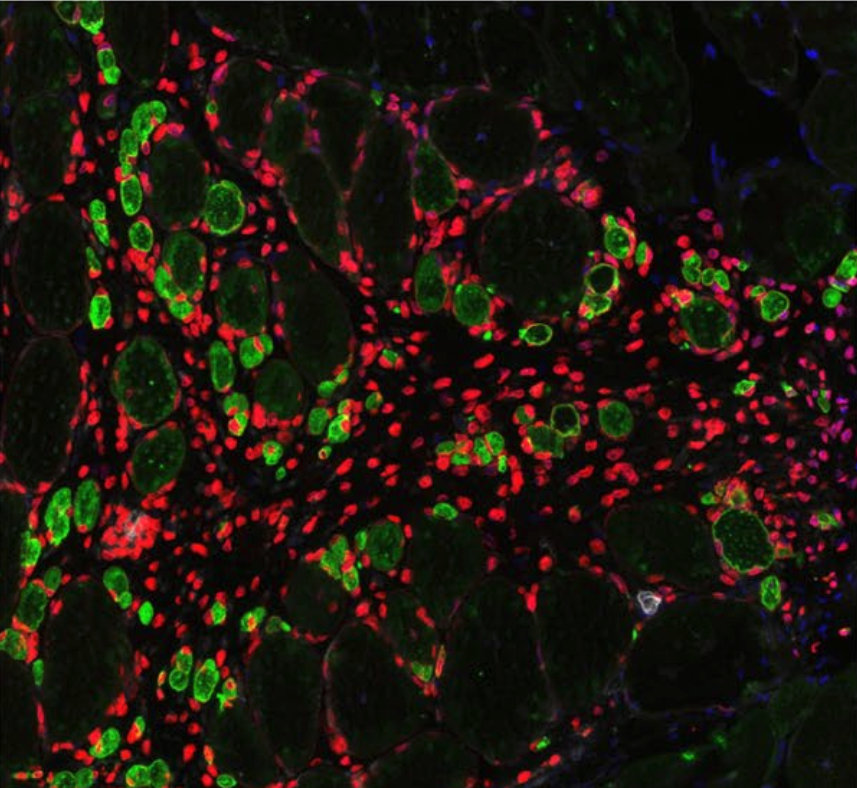Skeletal muscle progenitor cells may be the key to personalized therapies that regenerate muscle lost to disease or disorders like muscular dystrophy — given the right stimuli, they can form new muscle fibers within existing tissue. CSUN students in the CIRM Bridges to Stem Cell Research and Therapy program contributed to recently published research that zeroes in on the conditions that allow transplanted skeletal muscle progenitor cells to establish and restore function.
The project, published in Nature Cell Biology, was conducted at the UCLA Eli and Edythe Broad Center of Regenerative Medicine and Stem Cell Research, with contributions by CIRM Bridges alums Shahab Younesi and Victor Gutierrez-Garcia. It demonstrates that although lab-grown muscle progenitor cells failed to integrate fully after grafting into the muscles of living mice, progenitor cells donated by healthy adult humans were able to integrate as needed to sustain regeneration.
Younesi and Gutierrez-Garcia worked in senior author Dr. April Pyle’s lab as part of their CIRM experience, under the mentorship of CSUN Professor of Biology Cindy Malone. Younesi went on to complete a Master’s degree at CSUN, graduating in 2015, and now works as an iPSC Core Scientist at UCLA. Gutierrez-Garcia is currently conducting thesis research in the CSUN Biology Master’s program.
The full article is available Open Access on the journal website.
Featured image: Fluorescent microscopy image of fibers in mouse muscle tissue grafted with human muscle progenitor cells (Hicks et al. 2023, Figure 5a)

